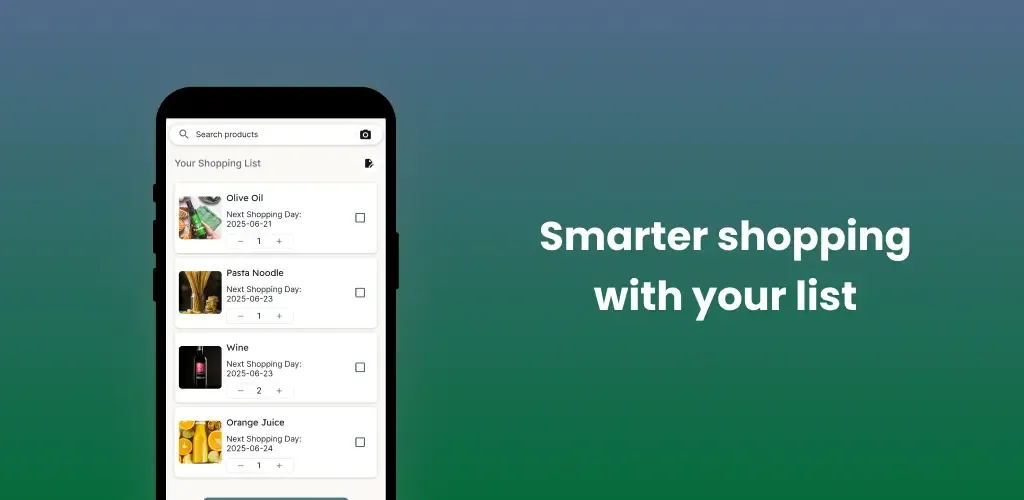
We are excited to announce the launch of “Tanuki,” an app designed for everyone who shops at supermarkets, drugstores, and other retail stores.
Tanuki aims to make your daily shopping more convenient. The Android version is officially released, and the iOS version is coming soon.
Download for Android here.
Update June 10, 2025 The iOS version has also been released! Download it from the link.
What Problems Does Tanuki Solve?
Have you ever experienced any of the following?
- You go shopping after a busy day but are too tired to remember what you need, so you wander the store for a long time.
- You make a shopping list, but it often contains the same items, making the process feel inefficient.
- Your family asks you to buy something, but when you get to the store, there are so many similar products that you’re not sure which one is correct.
- You see a new product while shopping but don’t have enough information to decide whether to buy it.
These may seem like separate issues, but they all share a common problem: a lack of information during the shopping process.
Tanuki is an app designed to help you quickly get the information you need.
Features of Tanuki
To provide the necessary information, Tanuki is building a product information database.
Unlike typical apps where you manually create shopping lists, Tanuki uses a different approach, which is technically challenging but ultimately more convenient for users.
For example:
- If the app knows what products you buy and how often, it can automatically generate shopping lists for you.
- If your family or friends requests an item, you can select the correct product using images or barcodes.
- When you encounter a new product, you can refer to reviews from other users to help you decide whether to buy it.
By leveraging a database, Tanuki can offer many useful features.
Tanuki’s Mission: A Consumer-First Perspective
One of principles for developers in building new app is: “Would I want to use this myself?” In fact, the issues mentioned above are things we personally experienced.
Initially, our goal was simply to eliminate these small frustrations, but as we developed Tanuki, we realized there is a structural problem in shopping: information asymmetry. Companies can share information about their products through packaging and marketing, but consumers often have no choice but to accept this information without any verification method, making it hard to know what the real experience will be like.
We don’t intend to criticize marketing itself, but we want to prioritize creating an environment where consumers can make decisions based on more information. That’s why Tanuki stands on the side of consumers.
The Weaker Position of Consumers
Let’s dig a little deeper into the structural issues in shopping.
First, as you know, consumers are in a weaker position compared to companies. That’s why there are various laws and regulations to protect consumers, but these have their limits.
For example, when you pick up a product in a store, what information do you get?
For food, you’ll see allergy and nutrition information as required by law, attractive packaging, and the price set by the retailer. You might also recall information from ads you’ve seen on TV or online.
But is this really the information you want before making a purchase?
Wouldn’t you rather know if the product delivers on its promises, or if it’s misleadingly packaged to look larger than it is?
We don’t have enough time to make decisions
Another issue is the limited time we have for daily shopping decisions.
When buying expensive items like appliances or smartphones, you can spend a lot of time comparing options. But for everyday items, you can’t spend minutes on each choice, so you need information quickly.
If you spend five minutes deciding on a product that costs only a few dollars, you might feel like you’ve wasted your time.
As a result, we tend to choose based on packaging or price. But many of the products we buy affect our health and life expectancy, so it’s important to have more information.
With limited time, we rely on price, appearance, brand trust, and past experience. But if we had access to more detailed information, like other consumers’ reviews or ingredient analysis, we could make better choices.
Tanuki aims to provide this deeper information quickly, supporting your daily shopping decisions.
The Power of Consumer Information Sharing
There is great potential in consumers sharing information with each other.
Companies vary in size and business model, but consumers share many common concerns, like health and safety.
For example, if many people say a product is ineffective, it’s likely to be the same for you. If people say a product looks bigger than it is, it might be intentionally designed that way.
By sharing information, consumers can use real experiences—not just company-provided info—to make better choices. Tanuki aims to be a platform for this kind of information.
Related Projects
A key partner in Tanuki’s development is the European project Open Food Facts.
Open Food Facts is like a Wikipedia for products, making collected data available to consumers, producers, scientists, and public organizations. It’s recognized by the UN as a digital public good supporting the SDGs.
Much of the product information in Tanuki comes from Open Food Facts. When you register product info in Tanuki, it’s also reflected in Open Food Facts, so using Tanuki helps improve their database as well.
In Closing
Tanuki is still new, so its features are currently limited, but we’ll keep adding new ones over time.
You can send feedback from within the app and support page, so please let us know your thoughts. The more people use Tanuki, the better the data gets, and the more the app will grow.
Finally, please make sure to download the app and try it out!